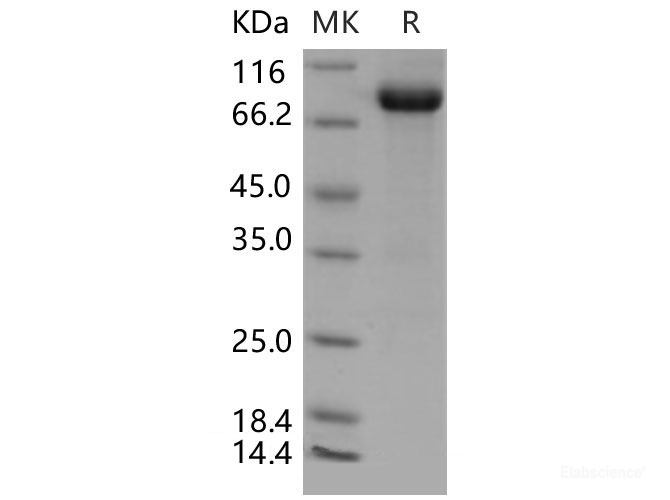Background
Discoidin domain receptor family, member 1 (DDR1), also known as or CD167a (cluster of differentiation 167a), and Mammary carcinoma kinase 10 (MCK10), belongs to a subfamily of tyrosine kinase receptors with an extracellular domain homologous to Dictyostellium discoideum protein discoidin 1. Receptor tyrosine kinases play a key role in the communication of cells with their microenvironment. These kinases are involved in the regulation of cell growth, differentiation and metabolism. Expression of DDR1/MCK10/CD167 is restricted to epithelial cells, particularly in the kidney, lung, gastrointestinal tract, and brain. In addition, it has been shown to be significantly overexpressed in several human tumors. DDR1/MCK10/CD167 plays an important role in regulating attachment to collagen, chemotaxis, proliferation, and MMP production in smooth muscle cells. DDR1 functions in a feedforward loop to increase p53 levels and at least some of its effectors. Inhibition of DDR1 function resulted in strikingly increased apoptosis of wild-type p53-containing cells in response to genotoxic stress through a caspase-dependent pathway.







